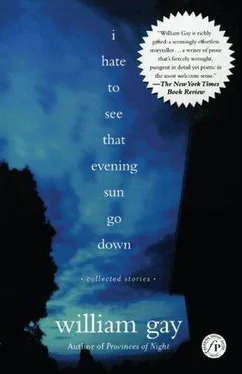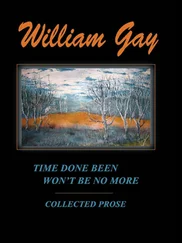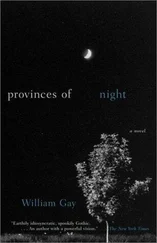He drove west past the hospital, the country club, the citylimit sign. He was thinking no thoughts at all, and all the destination he had was the amount of highway the headlights showed him.
IN THE SLOW RAINS of late fall the doctor’s wife returned to the unfinished mansion. She used to sit in a camp chair on the ruined veranda and drink chilled martinis she poured from the pitcher she carried in a foam ice chest. Dark fell early these November days. Rain crows husbanding some far cornfield called through the smoky autumn air. The sound was fiercely evocative, reminding her of something but she could not have said what.
She went into the room where she had lost the child. The light was failing. The high corners of the room were in deepening shadow but she could see the nests of dirt daubers clustered on the rich flocked wallpaper, a spider swing from a chandelier on a strand of spun glass. Some animal’s dried blackened stool curled like a slug against the baseboards. The silence in the room was enormous.
One day she arrived and was surprised to find the paperhanger there. He was sitting on a yellow four-wheeler drinking a bottle of beer. He made to go when he saw her but she waved him back. Stay and talk with me, she said.
The paperhanger was much changed. His pale locks had been shorn away in a makeshift haircut as if scissored in the dark or by a blind barber and his cheeks were covered with a soft curly beard.
You have grown a beard.
Yes.
You are strange with it.
The paperhanger sipped from his San Miguel. He smiled. I was strange without it, he said. He arose from the four-wheeler and came over and sat on the flagstone steps. He stared across the mutilated yard toward the treeline. The yard was like a funhouse maze seen from above, its twistings and turnings bereft of mystery.
You are working somewhere now?
No. I don’t take so many jobs anymore. There’s only me, and I don’t need much. What has become of the doctor?
She shrugged. Many things have change, she said.,He has gone. The banks have foreclose. What is that you ride?
An ATV. A four-wheeler.
It goes well in the woods?
It was made for that.
You could take me in the woods. How much would you charge me?
For what?
To go in the woods. You could drive me. I will pay you.
Why?
To search for my child’s body.
I wouldn’t charge anybody anything to search for a child’s body, the paperhanger said. But she’s not in these woods. Nothing could have stayed hidden, the way these woods were searched.
Sometimes I think she just kept walking. Perhaps just walking away from the men looking. Far into the woods.
Into the woods, the paperhanger thought. If she had just kept walking in a straight line with no time out for eating or sleeping, where would she be? Kentucky, Algiers, who knew.
I’ll take you when the rains stop, he said. But we won’t find a child.
The doctor’s wife shook her head. It is a mystery, she said. She drank from her cocktail glass. Where could she have gone? How could she have gone?
There was a man named David Lang, the paperhanger said. Up in Gallatin, back in the late 1800s. He was crossing a barn lot in full view of his wife and two children and he just vanished. Went into thin air. There was a judge in a wagon turning into the yard and he saw it too. It was just like he took a step in this world and his foot came down in another one. He was never seen again.
She gave him a sad smile, bitter and one-cornered. You make fun with me.
No. It’s true. I have it in a book. I’ll show you.
I have a book with dragons, fairies. A book where Hobbits live in the middle earth. They are lies. I think most books are lies. Perhaps all books. I have prayed for a miracle but I am not worthy of one. I have prayed for her to come from the dead, then just to find her body. That would be a miracle to me. There are no miracles.
She rose unsteadily, swayed slightly, leaning to take up the cooler. The paperhanger watched her. I have to go now, she said. When the rains stop we will search. Can you drive?
Of course I can drive. I have drive out here.
I mean are you capable of driving now. You seem a little drunk.
I drink to forget but it is not enough, she said. I can drive.
After a while he heard her leave in the Mercedes, the tires spinning in the gravel drive. He lit a cigarette. He sat smoking it, watching the rain string off the roof. He seemed to be waiting for something. Dusk was falling like a shroud, the world going dark and formless the way it had begun. He drank the last of the beer, sat holding the bottle, the foam bitter in the back of his mouth. A chill touched him. He felt something watching him. He turned. From the corner of the ruined veranda a child was watching him. He stood up. He heard the beer bottle break on the flagstones. The child went sprinting past the hollyhocks toward the brush at the edge of the yard, a tiny sepia child with an intent sloe-eyed face, real as she had ever been, translucent as winter light through dirty glass.
THE DOCTOR’S WIFE’S HANDS were laced loosely about his waist as they came down through a thin stand of sassafras, edging over the ridge where the ghost of a road was, a road more sensed than seen that faced into a half acre of tilting stones and fading granite tablets. Other graves marked only by their declivities in the earth, folk so far beyond the pale even the legibility of their identities had been leached away by the weathers.
Leaves drifted, huge poplar leaves veined with amber so golden they might have been coin of the realm for a finer world than this one. He cut the ignition of the four-wheeler and got off. Past the lowering trees the sky was a blue of an improbable intensity, a fierce cobalt blue shot through with dense golden light.
She slid off the rear and steadied herself a moment with a hand on his arm. Where are we? she asked. Why are we here?
The paperhanger had disengaged his arm and was strolling among the gravestones reading such inscriptions as were legible, as if he might find forebear or antecedent in this moldering earth. The doctor’s wife was retrieving her martinis from the luggage carrier of the ATV. She stood looking about uncertainly. A graven angel with broken wings crouched on a truncated marble column like a gargoyle. Its stone eyes regarded her with a blind benignity. Some of these graves have been rob, she said.
You can’t rob the dead, he said. They have nothing left to steal.
It is a sacrilege, she said. It is forbidden to disturb the dead. You have done this.
The paperhanger took a cigarette pack from his pocket and felt it, but it was empty, and he balled it up and threw it away. The line between grave robbing and archaeology has always looked a little blurry to me, he said. I was studying their culture, trying to get a fix on what their lives were like.
She was watching him with a kind of benumbed horror. Standing hip-slung and lost like a parody of her former self. Strange and anomalous in her fashionable but mismatched clothing, as if she’d put on the first garment that fell to hand. Someday, he thought, she might rise and wander out into the daylit world wearing nothing at all, the way she had come into it. With her diamond watch and the cocktail glass she carried like a used-up talisman.
You have broken the law, she told him.
I got a government grant, the paperhanger said contemptuously.
Why are we here? We are supposed to be searching for my child.
If you’re looking for a body the first place to look is the graveyard, he said. If you want a book don’t you go to the library?
I am paying you, she said. You are in my employ. I do not want to be here. I want you to do as I say or carry me to my car if you will not.
Читать дальше












